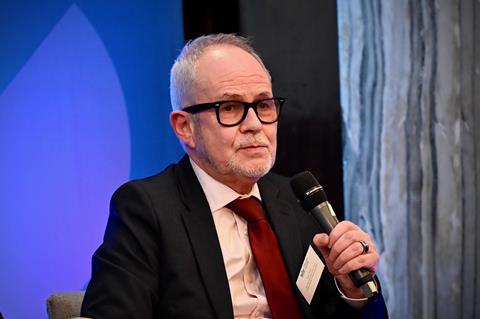As last month’s Day of the Endangered Lawyer highlighted oppression in Belarus, a Council of Europe body approved a ‘raft of protections’ for lawyers, embodied in a unique draft convention
Amid the grim revelations of this month’s Day of the Endangered Lawyer – dedicated to oppression in Belarus – came one ray of light. Tony Fisher, chair of the Law Society’s Human Rights committee, was able to report a significant step forward in the international campaign to make governments answerable for ‘attacks, threats, harassment and intimidation’ to legal professionals on their watch.
Speaking at the Law Society’s DoEL event, Fisher announced that an expert committee of the Council of Europe has agreed a Draft Convention for the Protection of the Profession of Lawyer. ‘It is very exciting,’ he said. ‘It is the only instrument like it in the world.’ The measure, binding on participating states, will introduce ‘a raft of protections against the wide range of threats faced by lawyers from state and non-state parties, even in democratic Europe.’
The convention has been several years in the making. Currently, the most frequently cited international safeguards for the role of lawyers are the United Nations ‘basic principles’, adopted at a 1990 conference in Havana. However, its declarations in support of professional independence and the right not to be identified with clients are not enforceable (least of all in Cuba, where the role of the state-run legal regulator has regularly come under international scrutiny).

Work on a binding international convention began in 2016 under the auspices of the European bar body the CCBE. The Council of Europe’s involvement began in 2022. The draft convention was the work of a 15-strong committee of experts representing CoE member states with widely different legal traditions – common law and civil law – and professional regulatory structures.
As might be expected, the agreed draft convention, which fills 30 pages of mirrored English and French text, is exhaustive, in principle covering everything from death squads to intemperate social media posts.
The draft, with its purpose ‘to strengthen the protection of the profession with independence and without discrimination, improper hindrance or interference, or being subject to text, threats, harassment or intimidation’, was approved and adopted by the CoE’s European Committee on Legal Co-operation in November last year. This week it was unanimously approved at the CoE’s parliamentary assembly in Strasbourg, where supporters from the UK included the attorney general, Lord Hermer, and former justice minister Lord Keen.
Some convention proposals
‘Parties shall ensure that…
- ‘Professional associations are consulted in a timely and effective manner on proposals by government for any change in legislation, procedural and administrative rules directly affecting the professional activities of lawyers and the regulation of the profession
- ‘Decisions concerning admission, continued authorisation and readmission to practise as a lawyer are taken by a professional association or other independent body
- ‘Lawyers can agree to refuse or accept any natural or legal persons as their clients
- ‘Lawyers do not suffer adverse consequences as a result of being identified with their clients or their clients’ cause.’
Under the convention, governments must ensure that lawyers can carry out their professional duties without being the target of ‘any form of physical attack, threat, harassment or intimidation’ or ‘any improper hindrance or interference’. Its articles cover entitlement to practise, lawyers’ professional rights, professional discipline, freedom of expression and protective measures. These require parties to ensure that lawyers and their professional associations are free to do their jobs without attack: in the event of such, parties must conduct an ‘effective investigation’.
Parties must also ensure that ‘professional associations’ are independent, self-governing bodies. Several of the articles recognise the existence of competing rights: for example the duty to ensure that lawyers ‘do not suffer adverse consequences from being identified with their clients’ must be applied ‘without prejudice to freedom of expression’.
Based on the current consensus, the wind seems set fair for the convention’s formal adoption by CoE ministers, scheduled for May. At least 10 countries must sign for it to come into effect. ‘We expect ratification this year,’ Fisher said, noting that the convention is open to states outside the Council of Europe.
Compliance with the convention will be monitored by an expert group named GRAVO, whose members will be chosen ‘according to a transparent procedure from among persons of high moral character’.
While no one expects the group to carry much weight among the world’s worst offenders, it may give governments concerned about their international standing pause for thought. To take a parochial example, any attempt by the UK to streamline legal regulation will have to pay heed to the convention’s ‘independence’ and self-governing’ provisions.
GRAVO can expect to be busy.
This article is now closed for comment.




































8 Readers' comments